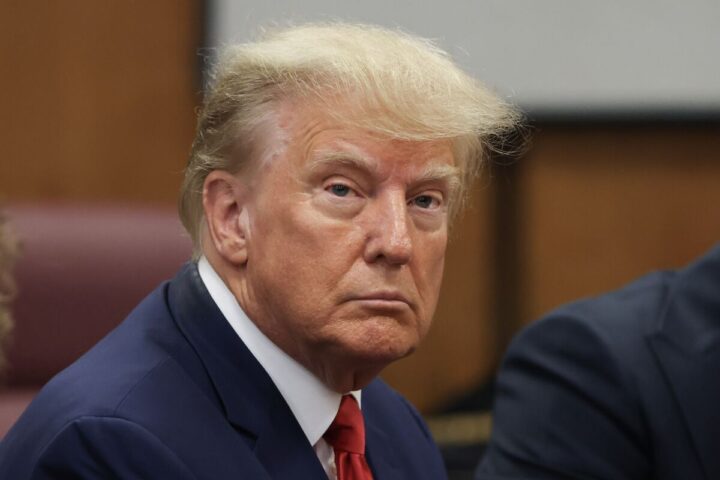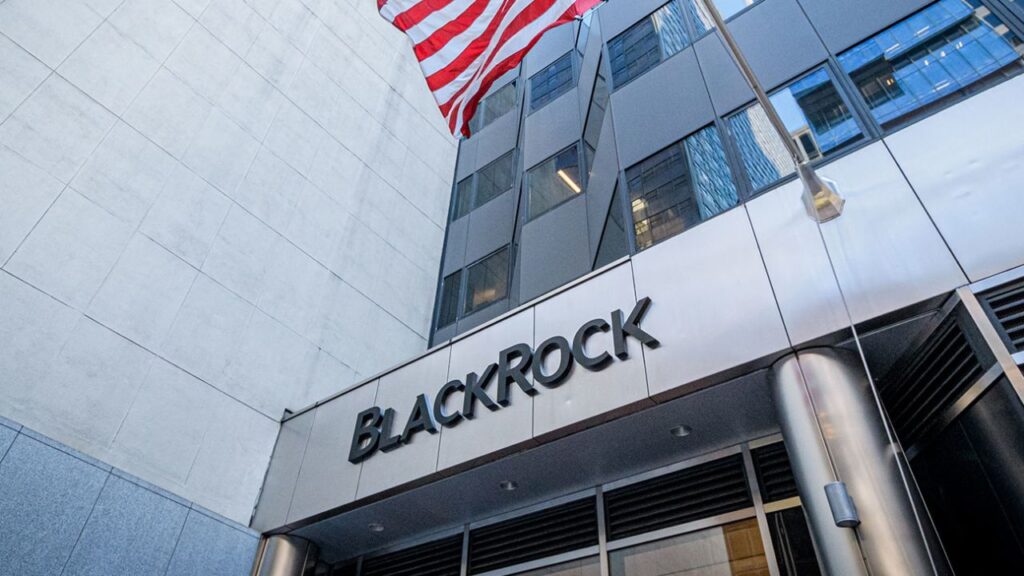VanEck, the asset management firm, has decided to shutter and liquidate its Bitcoin Strategy Exchange-Traded Fund (ETF), a move that comes less than two years after its launch.
The decision was officially announced on January 17th, with VanEck’s board of trustees granting approval for the liquidation and dissolution of the ETF, which had been listed on the Cboe BZX Exchange since November 2021.
This strategic move follows VanEck’s recent approval from the United States Securities and Exchange Commission (SEC) to list shares of its spot Bitcoin ETF.
VanEck explained that this decision was the result of a comprehensive evaluation of multiple factors, including performance, liquidity, assets under management, and investor interest.
In a statement, the firm stated, “VanEck continuously monitors and evaluates its ETF offerings across a number of factors, including performance, liquidity, assets under management, and investor interest, among others.”
Shareholders who hold positions in the Bitcoin Strategy ETF will have until January 30th to sell their shares, as the fund’s ticker symbol, XBTF, is set to be delisted on February 6th.
READ MORE: Ether Surges Over 20% Against Bitcoin in 72 Hours, Traders Bullish on Further Upside
In a post dated January 17th, VanEck hinted that the decision to discontinue the ETF linked to Bitcoin futures was influenced by the SEC’s green light for spot Bitcoin investment vehicles.
VanEck has also made strides in the cryptocurrency space by launching the VanEck Bitcoin Trust ETF, with the ticker symbol HODL.
This ETF started trading on the Cboe BZX Exchange on January 11th, and it has seen impressive success, with all recently approved spot Bitcoin ETFs collectively amassing approximately $4.5 billion in trading volume on their first day of operation.
A report from CoinShares underlined the increasing popularity of cryptocurrency products in the United States, as it revealed that inflows into U.S. crypto products for the week ending on January 12th surpassed those of Canada, Germany, and Sweden.
This data suggests that despite the discontinuation of the Bitcoin Strategy ETF, the interest and investment in cryptocurrencies remain robust and continue to shape the financial landscape.
In 2022 and 2023, a significant shift occurred in the world of cryptocurrency-related illicit activities as stablecoins eclipsed Bitcoin in terms of transaction volume.
This transformation is highlighted in the latest report by blockchain analytics firm Chainalysis, which reveals that from 2018 to 2021, Bitcoin was the “go-to cryptocurrency” for cybercriminals. However, the years 2022 and 2023 saw stablecoins taking the lead in facilitating illicit transactions.
This transition coincided with the overall surge in stablecoin activity, encompassing both lawful transactions and nefarious ones.
Nonetheless, it’s important to note that Bitcoin remains the preferred choice for certain types of illicit activities, such as darknet market sales and ransomware extortion.
Stablecoins have gained favor among cybercriminals, particularly for activities like fraudulent schemes and transactions involving sanctioned entities.
These activities represent the most substantial portion of crypto-related crimes in terms of transaction volume.
READ MORE: Crypto Rating Agencies Gain Importance in Managing Risks Amid Ongoing Industry Challenges
According to Chainalysis, sanctioned entities and jurisdictions accounted for a combined transaction volume of $14.9 billion in 2023, constituting 61.5% of all illicit transactions during that year.
Chainalysis also points out that a significant portion of this volume stems from crypto services that continue to operate in regions not subject to U.S. sanctions.
This allows them to evade the reach of the United States Department of the Treasury’s Office of Foreign Assets Control.
In another positive development, blockchain security firm CertiK reported on January 4th that crypto hack revenue had decreased by more than 51% in 2023.
This marked a notable improvement in blockchain security, as noted by CertiK’s co-founder, Ronghui Gu.
Chainalysis corroborated these findings in their report, revealing a 54.3% decrease in crypto hack revenue and a 29.2% drop in profits from crypto scams.
Consequently, there has been a decline in transaction volume associated with illicit addresses in 2023.
In summary, the landscape of crypto-related illicit activities shifted dramatically in 2022 and 2023, with stablecoins taking precedence over Bitcoin for most of the illicit transaction volume.
This change is driven by the increased popularity of stablecoins among cybercriminals, particularly for fraudulent schemes and transactions involving sanctioned entities.
Despite these shifts, efforts to enhance blockchain security have yielded positive results, leading to a decline in hack revenue and scam profits, as reported by CertiK and Chainalysis.
Since the launch of spot Bitcoin exchange-traded funds (ETFs) in the United States on January 11, these new investment vehicles have rapidly gained traction, with trading volumes soaring past $10 billion within just three days, as reported by Bloomberg Intelligence analyst James Seyffart.
This meteoric rise in trading activity has sparked debate, with some questioning whether the frenzied trading has had any substantial impact on Bitcoin’s price.
However, Eric Balchunas, another Bloomberg analyst, emphasizes the sheer magnitude of this achievement.
He points out that the $10 billion volume in the first three days dwarfs the performance of 500 ETFs launched throughout 2023, which collectively managed only $450 million in volume during the same period.
The most successful ETF from that batch achieved a mere $45 million in trading volume.
In contrast, BlackRock’s iShares Bitcoin Trust (IBIT) alone recorded more activity than the entire class of ETFs launched in 2023.
Regarding net inflows and outflows, the data shows a trend of investors moving away from the Grayscale Bitcoin Trust (GBTC), which recently transitioned into an ETF format.
Over three days, BlackRock’s IBIT accumulated an impressive $700 million in net gains.
Meanwhile, GBTC experienced net outflows of over $1.1 billion, likely due to investors switching to ETF products with lower fees.
READ MORE: Vanguard’s Indirect Crypto Exposure: Owning a Significant Stake in MicroStrategy
James Van Straten, a research and data analyst at CryptoSlate, expressed optimism about the ongoing trends:
“GBTC total outflows are now at $1.18 billion vs. spot Bitcoin ETF inflows of $2 billion. It would be extremely encouraging if we continued this pace for the first month of trading.”
CEO Samson Mow anticipates a return to ETF equilibrium in the near future, expecting Grayscale to adjust its fees and alleviate the selling pressure.
While these developments are exciting, the Bitcoin price remains within its well-established trading range since December 2023, hovering around $43,000.
Although some remain confident in the market’s strength at this level, concerns persist regarding Bitcoin’s ability to avoid another significant price decline.
Popular social media trader JT believes that there is still room for further decline, especially when considering the long-standing trading range.
The price has found support around $41,500 in January, repeatedly testing this level since the beginning of 2024, according to data from Cointelegraph Markets Pro and TradingView.
The cryptocurrency community remains watchful, hoping for stability and potential price growth as the ETF market continues to evolve.
More than a year has passed since the notable Terra, FTX, and Celsius collapses in 2022, and the cryptocurrency industry has faced numerous challenges since then.
Industry leaders are now discussing the crucial role of crypto rating agencies in managing risks within the crypto sphere.
In 2022, Ben Goertzel, the CEO of SingularityNET, a decentralized artificial intelligence (AI) firm, argued that rating agencies could play a more significant role in rebuilding trust in crypto than regulators.
As we enter 2024, Goertzel remains skeptical of regulatory efforts aimed at bolstering confidence in the crypto space.
He expressed his lack of faith in regulatory agencies, stating, “Nothing that the world’s regulatory agencies have done since 2022 has increased my faith that they are going to be able in practice to do more good than harm for customers or service providers in the crypto space.”
However, Goertzel believes that transparent, crowdsourced, and intelligently aggregated rating mechanisms could significantly benefit the crypto landscape.
He highlighted the advancements in AI technology, which now make it easier to generate customized summaries of the reputations of various entities in crypto using raw data and reports from diverse sources.
Goertzel also pointed out the United States regulator’s handling of the FTX case as evidence that special laws for crypto fraud may not be necessary.
He argued that existing laws against fraud can effectively be applied to arrest “crypto fraudsters,” similar to individuals involved in other fraudulent activities.
While he doesn’t believe that rating agencies could have prevented the FTX collapse, he suggests that they could have “alerted customers to the numerous red flags observable in advance.”
READ MORE: Ether Surges Over 20% Against Bitcoin in 72 Hours, Traders Bullish on Further Upside
Anastasia Ulianova, co-founder of the crypto ratings platform Aria, acknowledges the limitations of rating agencies in preventing collapses like FTX.
Ulianova emphasized that rating agencies can “raise red flags” when the risk associated with a particular crypto exceeds its performance, but they cannot predict collapses.
She stated, “A rating can only tell you how much risk you are taking. It is not a certain prediction of an upcoming collapse.”
Despite these limitations, Ulianova believes that rating agencies can still play a crucial role in helping investors assess the risk-to-reward ratio of tokens.
This information can aid investors in determining whether the expected returns justify the associated risks.
She also emphasized that Aria’s goal as a rating agency is to “legitimize the place of crypto assets in a traditional investment portfolio.”
In summary, crypto rating agencies are being viewed as a valuable tool in the cryptocurrency industry to assess risks and provide investors with information needed to make informed decisions.
While they may not prevent collapses, they can help individuals navigate the complex crypto landscape and make more educated investment choices.
BlackRock’s conservative approach to advertising its iShares Bitcoin Trust ETF (IBIT) may prove to be a winning strategy in attracting the affluent baby boomer demographic.
On January 11, BlackRock, a financial juggernaut, unveiled its first video advertisement for IBIT, introducing investors to the concept of Bitcoin and how they can gain exposure to it through the new ETF.
The ad, running for nearly two minutes, features a BlackRock executive calmly explaining Bitcoin’s value proposition and the ease of investing in the ETF.
Jay Jacobs, BlackRock’s US head of thematics and alternative ETFs, highlights IBIT’s accessibility, operational simplicity, and the reputation and expertise BlackRock brings to the ETF space.
Notably, the advertisement steers clear of flashy graphics and complex crypto jargon, setting it apart from other Bitcoin ETF commercials.
Industry commentators have lauded BlackRock’s approach as tailor-made for the well-off baby boomer audience.
READ MORE: Ether Surges Over 20% Against Bitcoin in 72 Hours, Traders Bullish on Further Upside
Eric Balchunas, an ETF analyst at Bloomberg, noted that the ad’s calm demeanor, straightforward message, soothing music, and the absence of a tie on the executive convey a reassuring message: “it’s okay now, the adults are here.”
Chris Dark, founder and managing partner of Fourth Turning Investments, dubbed the ad “so boring it’s brilliant” for its effectiveness in capturing the attention of baby boomers.
Digital asset investor Fred Krueger concurred, asserting that wealthy boomers prefer traditional finance firms like BlackRock and Fidelity over tattoo-covered Gen-Xers advocating for a financial system overhaul.
He indicated that they are now eagerly adding IBIT and FBTC to their portfolios, perceiving it as a Wall Street takeover of the Bitcoin narrative.
The battle for marketing supremacy among Bitcoin ETFs began with Bitwise’s ad release on December 18, 2023.
Shortly after, ETF issuers such as Hashdex and VanEck also unveiled their advertisements. In January, ARK Invest and Grayscale launched new advertising campaigns.
The Valkyrie Bitcoin Fund (BRRR) even advertised on the Nasdaq billboard in Times Square on January 13.
While BlackRock, Fidelity Investments, and others have reportedly showcased their Bitcoin ETFs on their homepages, the deliberate simplicity of BlackRock’s ad campaign appears to have struck a chord with the affluent baby boomer demographic, potentially setting the tone for success in this competitive market.
The United States Government Accountability Office (GAO) recently offered crucial recommendations to the Securities and Exchange Commission (SEC) in anticipation of its approval of a spot Bitcoin exchange-traded fund (ETF) on January 10.
These recommendations primarily revolved around workforce management for the digital asset market and the regulatory approach towards the burgeoning industry in the upcoming years.
The GAO presented these recommendations to the SEC on December 15, and they were made public on January 16.
The GAO’s report advised the SEC to develop a new workforce plan, establish clear policies and procedures for its Strategic Hub for Innovation and Financial Technology (FinHub) internal controls, and formulate performance objectives for the hub.
The GAO, known for its independent and nonpartisan role within the U.S. federal government’s legislative branch, provides auditing, evaluation, and investigative services for the U.S. Congress.
Upon assessing the SEC’s readiness to handle the growing crypto market, the GAO identified that the agency currently employs 116 individuals primarily focused on crypto asset matters.
However, the SEC has yet to create an updated workforce planning strategy, despite the need to align with its fiscal years 2019–2022 strategy.
The GAO suggested that such a strategy would better equip the SEC to address future workforce requirements and effectively fulfill its responsibilities in overseeing and formulating policies related to crypto assets.
READ MORE: Rosario Witnesses Historic First as Tenant Pays Monthly Rent in Bitcoin
Additionally, the GAO observed that while the SEC’s FinHub coordinates oversight of emerging technology, it lacks documented policies, procedures, and performance goals, even though it has established operational processes like meetings with market participants.
In response to their assessment, the GAO issued three recommendations:
- The SEC’s chief should ensure that the chief human capital officer devises a new workforce planning strategy in line with the agency’s 2022–2026 strategic and performance plans.
- The SEC’s chief should ensure that the FinHub director documents policies and procedures that underpin its internal controls.
- The chair of the SEC should ensure that the FinHub director establishes performance goals and metrics that are clear, quantifiable, and targeted.
For each of these recommendations, the GAO included a live status section to monitor whether the SEC takes appropriate actions on them.
In a landmark decision, the SEC granted approval for 11 spot Bitcoin ETF applications on January 10. The internal document shared by the SEC revealed that the proposal received three votes in favor and two against. SEC chief Gary Gensler’s decisive vote marked the approval of the first spot BTC ETFs in the U.S., ending nearly a decade of rejections.
Notably, gold enthusiast and prominent Bitcoin critic Peter Schiff suggested that Gensler was pressured into approving the spot Bitcoin ETFs.
However, Schiff cautioned that Gensler might introduce stringent crypto regulations in the near future, potentially increasing the cost of Bitcoin transactions and undermining its utility, which could lead to a significant price drop.
All the approved spot BTC ETFs commenced public trading the following day, quickly amassing over $2 billion in trading volume on their debut.
BlackRock CEO Larry Fink expressed skepticism regarding the practicality of using Bitcoin for everyday transactions, emphasizing that it should be recognized primarily as an asset class rather than a currency.
During an interview with CNBC on January 11, Fink reiterated his belief in Bitcoin as an alternative form of wealth storage, downplaying its potential to replace national currencies.
Fink stated, “I don’t believe it’s ever going to be a currency. I believe it’s an asset class.” He firmly believes that Bitcoin’s primary role is as a store of value.
However, Fink is more optimistic about the emergence of central bank digital currencies (CBDCs) in the near future.
He foresees the development of digital currencies that leverage blockchain technology, saying, “I think we’re going to create digital currencies, we’re going to use technology for it. We’re going to use a blockchain.”
Recent data from Cointelegraph reveals that over 100 countries are exploring the development of CBDCs, with 39 countries already piloting, testing, or launching CBDC initiatives.
READ MORE: Turkey Gears Up for Cryptocurrency Regulation Overhaul
When asked about ARK Invest CEO Cathie Wood’s Bitcoin valuation predictions, ranging from $600,000 to $1 million, Fink indicated that price speculation wasn’t his primary focus at the moment.
He emphasized his current priority, which is the launch of BlackRock’s newly approved spot Bitcoin exchange-traded fund (ETF), aimed at providing an instrument for storing wealth.
Fink added, “I think if it gets even close to that high, gold will represent even a bigger value. And let’s be clear, if you think it’s digital gold, there’s going to be a reference point between gold and Bitcoin.”
In a separate interview with Fox Business on the same day, Fink highlighted that the approval of the Bitcoin ETF by the United States Securities and Exchange Commission (SEC) signifies the legitimization of the cryptocurrency industry and will enhance safety for investors.
BlackRock’s ETF approval came alongside approvals for 10 other similar products.
Since receiving approval for its Bitcoin ETF, BlackRock has garnered an impressive record of 576 ETF approvals with only one rejection, underscoring its growing influence and prominence in the world of exchange-traded funds.
Asset management firm Vanguard may not be directly offering Bitcoin exchange-traded funds (ETFs) on its platform, but it has a notable connection to the cryptocurrency space through its ownership of a substantial stake in MicroStrategy (MSTR).
As of September 2023, Vanguard Group was found to hold a significant 8.24% ownership stake in MicroStrategy, making it the second-largest institutional shareholder in the company, with a whopping 1,126 million MSTR shares in its portfolio, according to data from Yahoo Finance.
Moreover, MicroStrategy’s stock also features in the holdings of several of Vanguard’s mutual funds, including the Vanguard Total Stock Market Index Fund, Vanguard Small-Cap Index Fund, Vanguard Extended Market Index Fund, and Vanguard Small-Cap Growth Index Fund.
MicroStrategy itself has established a robust connection with Bitcoin, with its balance sheet carrying a substantial exposure to the cryptocurrency.
Over the past years, MicroStrategy and its subsidiaries have accumulated a total of 189,150 BTC, with a collective purchase price of approximately $5.9 billion.
READ MORE: U.S. SEC Approval of Bitcoin ETF Sparks Global Crypto Market Frenzy
This has led some analysts to characterize MicroStrategy as essentially functioning as a leveraged Bitcoin ETF, given the significant impact of Bitcoin on its stock price in 2023.
In contrast, Vanguard has maintained a somewhat distant stance from the cryptocurrency market.
Despite the debut of spot Bitcoin ETFs by several asset managers on major Wall Street exchanges on January 11, Vanguard chose to block the purchase of such products.
They cited a misalignment with their vision and emphasized their focus on traditional asset classes like equities, bonds, and cash, which they consider the foundational components of a well-balanced, long-term investment portfolio.
Nonetheless, Vanguard’s indirect yet substantial exposure to Bitcoin through its MicroStrategy holdings implies that fluctuations in Bitcoin’s price can affect the performance of its mutual funds and the value of its MSTR shares.
For Vanguard clients, this represents an indirect means of gaining exposure to the cryptocurrency through the firm’s investment platform.
In the rapidly evolving crypto landscape, various firms anticipate a surge in Bitcoin-related products in the coming months, including leveraged and short Bitcoin ETFs, as well as crypto loans collateralized by Bitcoin.
In Rosario, the third-largest city in Argentina, a unique rental agreement has been struck between a local landlord and a tenant.
This groundbreaking contract marks the first instance in Argentina where monthly rent will be paid in Bitcoin.
This innovative arrangement was made possible by recent legislative changes implemented by the country’s new presidential administration.
Under the terms of this historic contract, the tenant will be responsible for making monthly payments equivalent to $100 in Bitcoin.
These transactions will be facilitated through Fiwind, a local cryptocurrency platform.
Notably, both parties involved in this contract are experienced cryptocurrency users, signaling a growing acceptance of digital currencies in the region.
The shift towards embracing cryptocurrencies in Argentina can be attributed to the reforms introduced by President Javier Milei, who assumed office after winning the general election in November 2023.
READ MORE: How Playable Ads Are Set to Reinvigorate the Streaming and Digital Content Industry
The nation was grappling with soaring inflation rates, prompting the need for significant changes in vario
us aspects of the legal system, including rental laws.
In December 2023, Diana Mondino, the Minister of Foreign Affairs, International Trade, and Worship, announced a pivotal decree aimed at promoting economic reform and deregulation.
This decree opened the door for the utilization of Bitcoin and other cryptocurrencies within the country, albeit with certain conditions.
One of the notable changes in the regulatory landscape was the government’s efforts to facilitate the legalization of cryptocurrency holdings, even for individuals who were behind on their tax declarations.
A regularization scheme was introduced, allowing taxpayers to declare their cryptocurrency assets with a flat tax rate of 5% if done by the end of March 2024.
This rate would then increase to 10% from April and further to 15% from July until the end of September.
These recent developments signify Argentina’s growing recognition of the potential of cryptocurrencies as a viable means of conducting financial transactions and fostering economic growth.
With this groundbreaking rental agreement in Rosario, the country takes another step towards embracing the digital currency revolution, potentially setting a precedent for similar arrangements in the future.
Ether has surged over 20% against Bitcoin within just 72 hours, and traders are anticipating further upward movement.
Data from Cointelegraph Markets Pro and TradingView reveals that ETH/BTC, which hit yearly lows of 0.0478 on January 9th, has now climbed to 0.0587.
ETH/USD is also experiencing a breakout, reaching levels not seen on the chart since mid-2022.
A bullish divergence on the moving average convergence divergence (MACD) indicator on weekly timeframes against Bitcoin has caught the attention of popular traders.
This week, Ethereum, the largest altcoin, has outperformed Bitcoin in terms of returns, even as Bitcoin celebrates the launch of spot exchange-traded funds (ETFs) in the United States.
Despite BTC/USD reaching its highest levels since the post-ETF announcement in December 2021, Ether’s resurgence seems to overshadow it.
The anticipation of Ethereum’s U.S. ETF debut later in the year has added to the bullish sentiment.
BlackRock’s CEO, Larry Fink, who recently released a Bitcoin ETF, expressed interest in a similar move for Ether, which further fueled optimism around Ethereum.
READ MORE: Turkey Gears Up for Cryptocurrency Regulation Overhaul
“Larry Fink is already beating the Ethereum drum. One day after the Bitcoin launch,” responded trader and analyst Scott Melker, also known as “The Wolf Of All Streets,” on X (formerly Twitter). “The rotation is real.”
Looking ahead, Michaël van de Poppe, founder and CEO of trading firm MNTrading, believes that Ether will continue to gain ground against Bitcoin as part of the overall cryptocurrency market cap.
He suggested that Bitcoin’s dominance appears to have peaked, especially in anticipation of the Bitcoin halving.
“Expecting to see a continuation as Ethereum is taking more momentum.
This might be the cycle’s high on the Dominance as the altcoin bull market has started,” said Van de Poppe.
He also pointed out that attention may shift away from BTC/USD until after the block subsidy halving in April, which is considered a price catalyst, albeit not an immediate one.
Meanwhile, the ETF narrative suggests a potential Bitcoin supply squeeze as institutions seek long-term exposure to BTC.
This factor could further impact the dynamics between Ethereum and Bitcoin in the coming months.










